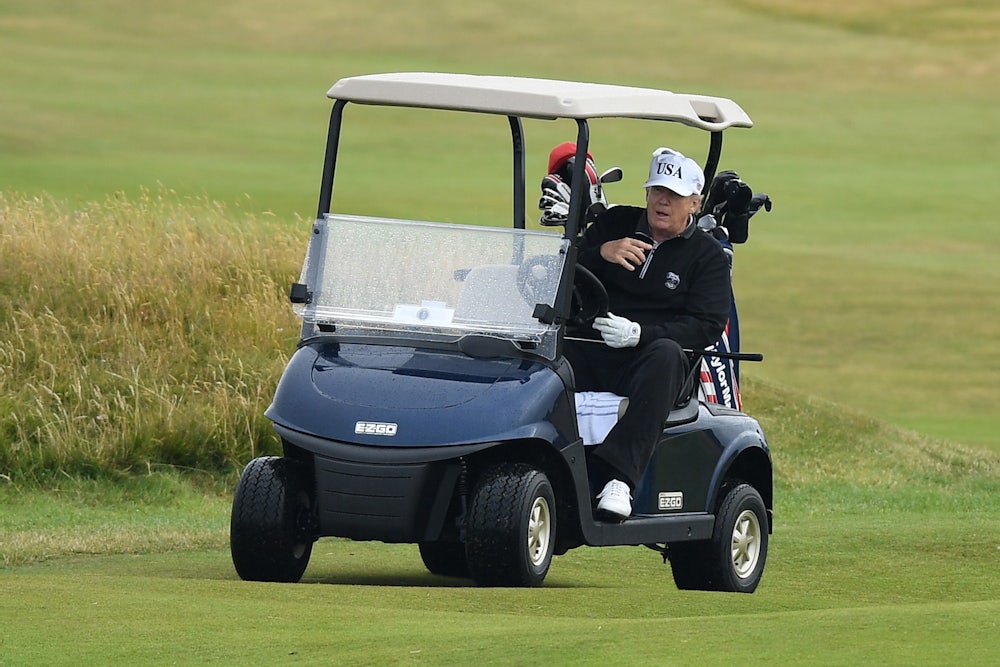Just a few days ago, Trump flashily procured a mask from his jacket pocket during his debate with Biden to indicate his openness to wearing one. “I put a mask on when I think I need it,” he said grandly. But a few hours after a high-dollar fundraiser at his golf course in Bedminster, New Jersey, on Thursday, the White House announced that Trump and Melania had both tested positive for Covid-19. At the event, Trump and more than a few attendees had naturally gone unmasked, and it wasn’t the first time. At one prior event at the same golf course, a mostly maskless audience had booed a reporter who asked about masks, an outburst that Trump then described as a “peaceful protest,” to yet more cheers from the crowd.
Throughout the pandemic, the media’s coverage of American anti-mask sentiment has mostly focused on the spectacle of gun-toting “don’t tread on me” Ammon Bundy types. But the recent Bedminster incident exposes a different type of mask-flouting that’s in some ways more pernicious. That’s the wealth-induced recklessness of the country club anti-mask set, or the people who have convinced themselves that their money has sufficiently insulated them from possible exposure and who know they’ll have access to top-notch medical care even if they do happen to fall sick. As a local news channel reported, tickets to Trump’s Thursday fundraiser ranged in price from $50,000 to $250,000. Those anti-maskers weren’t, in other words, flyover-country blue-collar workers railing against science or government overreach; they were rich coastal elites who could literally afford to be careless. Predictably, a number of donors who came into contact with Trump at the event have started panicking upon hearing of his diagnosis, which doesn’t quite explain why they were willing to meet privately with (and throw money at) the same president who’s continuously downplayed the severity of the pandemic. (Though one can guess.)
If the pandemic threw the entire country into havoc, it also hit the working class the hardest. As Labor Institute co-founder Les Leopold wrote in July, income remains perhaps the greatest predictor of who dies from Covid-19, and that, in turn, has led to grim racial disparities in Covid death rates. Affluent people are, as we know, more likely to be able to work from home and have resources like paid sick leave and health insurance. But even beyond that, the well-off are much less likely to suffer from the underlying conditions that lead to serious Covid-19 complications, including diabetes, obesity, and heart disease (all of which, as it happens, are associated with poverty). It’s easy to rail against masks and social distancing when you’re not working a service job that puts you in close contact with the public; it’s perhaps just as easy to forgo a mask when you know your wealth probably insulates you in multiple ways from the worst effects of the virus.
Despite what I’m sure are now the fervent wishes of plenty of Democrats, Trump could very well make a full and speedy recovery, much like his allies Boris Johnson and Jair Bolsonaro, who both contracted Covid-19 earlier this year and emerged relatively unscathed. The same goes for any of his country club buddies who may happen to test positive after a photo op with their president. It’s hard to make the case, as Trump did on Thursday night, that “the end of the pandemic is in sight,” but it’s clear that a certain kind of immunity already exists for the rich.
